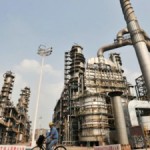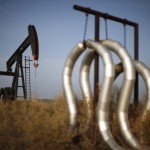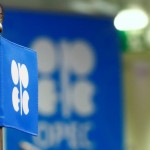Saudi Oil Minister Surprises OPEC with Tough Line on Prices

Prepared for $20 a barrel to force production cuts outside the Middle East, Says al Naimi
Saudi Arabian Oil Minister Ali al-Naimi surprised fellow members of the Organization of the Petroleum Exporting Countries on Tuesday when he said the kingdom was prepared to let oil prices slip to $20 a barrel—a level that would strangle some of the group’s own members.
At a Houston conference drawing oil-company executives and officials from producing countries, Mr. Naimi ruled out coordinated production cuts across OPEC and non-OPEC nations to address an oversupply that has caused crude prices to drop 70% since June 2014. Oil supply is outstripping demand by a million barrels a day.
Mr. Naimi said market forces would rebalance supply and demand, pushing prices low enough to force cutbacks from producers in places outside the Middle East, where some projects need oil prices of $60 per barrel or more to make a profit.
“Inefficient, uneconomic producers will have to get out,” Mr. Naimi said. “This is tough to say and that’s a fact. “We can coexist with $20. We don’t want to, but if we have to, we will.”
Mr. Naimi is taking aim at producers in places like U.S. shale reserves and Canada’s oil sands. U.S. shale drillers couldn’t pump at $20 oil despite reducing their break-even costs, Keith Cochrane, the chief executive of Weir Group PLC, which supplies the industry with pumps and valves, said in a conference call with reporters Wednesday.
In contrast, Persian Gulf Arab states like Saudi Arabia, the United Arab Emirates and Kuwait “can make lots of money” with oil prices in the range of $20 to $30 a barrel, said Tim Weller, the chief financial officer of U.K. oil-services provider Petrofac Ltd. in a separate a conference call Wednesday.
The problem for OPEC is that Saudi Arabia’s high production also hurts other members of the group such as Nigeria and Angola. Their big reserves are offshore and have higher costs than Saudi Arabia-—indeed so high that major projects coming online in those countries are the type of expensive production that Mr. Naimi wants “to get out” of the market for prices to rebound. A Nigerian oil official said the country needs prices of at least $30 to $35 per barrel for offshore projects to break even.
The slump is already hurting the economies of African producers. Nigeria is holding talks with the World Bank and African Development Bank to borrow $3 billion to help with an $11 billion budget deficit this year.
Angola has slashed its domestic fuel subsidies to help cut government spending, triggering price rises of up to 80%.
Mr. Naimi’s remarks represented a repudiation of what some see as the organization’s purpose: Keeping prices stable. Mr. Naimi said regulating prices wasn’t part of OPEC’s core mission, suggesting instead that its role was to balance supply and demand.
“The country that has sacrificed for defending prices is Saudi Arabia,” Mr. Naimi said, referring to past production cuts by OPEC that were borne largely by the kingdom, the world’s largest exporter of crude. “We are still willing to do that but will do it differently. We are going to let everyone compete.”
That message was clear to one Iranian OPEC official who said: “OPEC is no longer playing its role in balancing markets.”
Venezuela, an OPEC nation where the economy has been devastated by low oil prices, has tried to convince Saudi Arabia and big non-OPEC producers like Russia to cooperate, the country’s oil minister said earlier this month. And Mr. Naimi and his Russian counterpart, Alexander Novak, struck a deal last week with Qatar and Venezuela to limit their production to January’s levels.
But it came with a hitch: Other big producers like Iran would have to follow. But Iran, newly freed from international sanctions, is trying to increase its output to levels recorded before the sanctions were tightened in 2012.
On Tuesday, Iranian Oil Minister Bijan Zanganeh called the idea of freezing production “a joke.”
Meanwhile Iraq’s OPEC representative Faleh al-Amri said Wednesday at an Abu Dhabi conference that OPEC action was needed but that his country had no intention to curb its output.
“If producers want the oil price to rise, they have to act now, he said, adding “it’s a very, very dangerous situation.”
Mr. Naimi said a production freeze would help stop any increase in supplies as demand naturally rises. But he nodded to estimates from the International Energy Agency and bank analysts that it wouldn’t happen quickly.
“It will take time,” Mr. Naimi said.
Source: WSJ





























